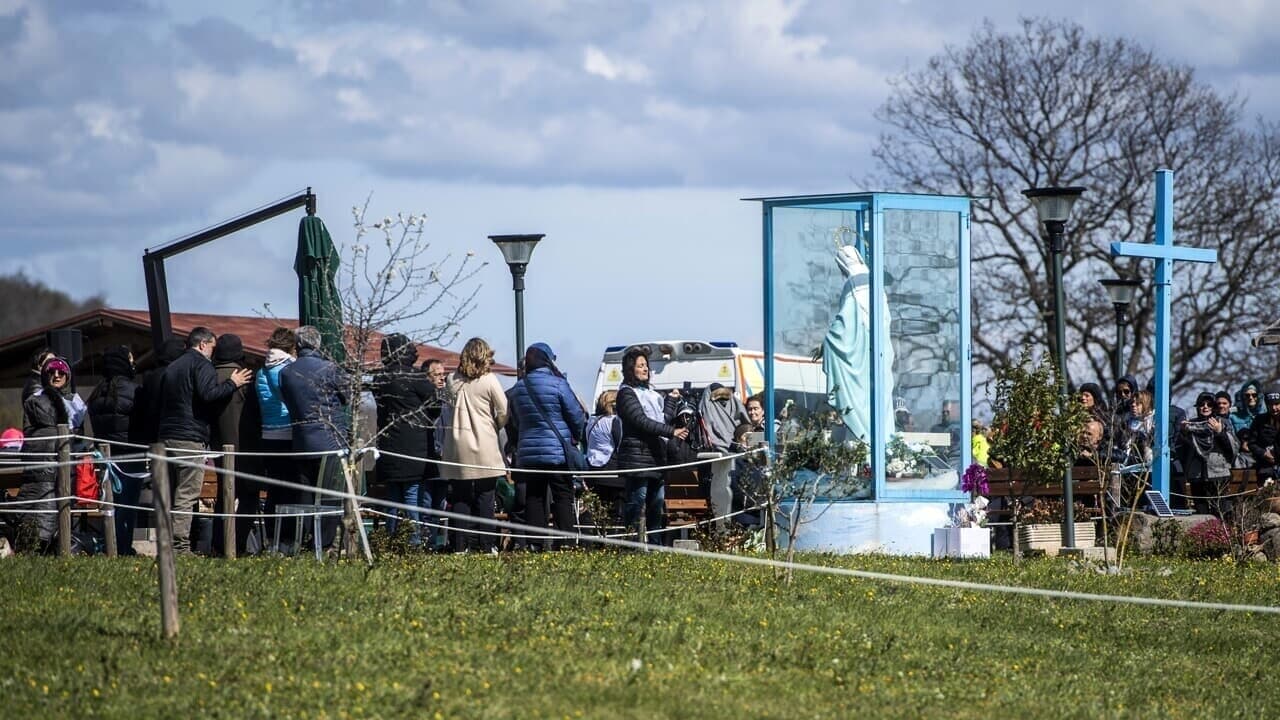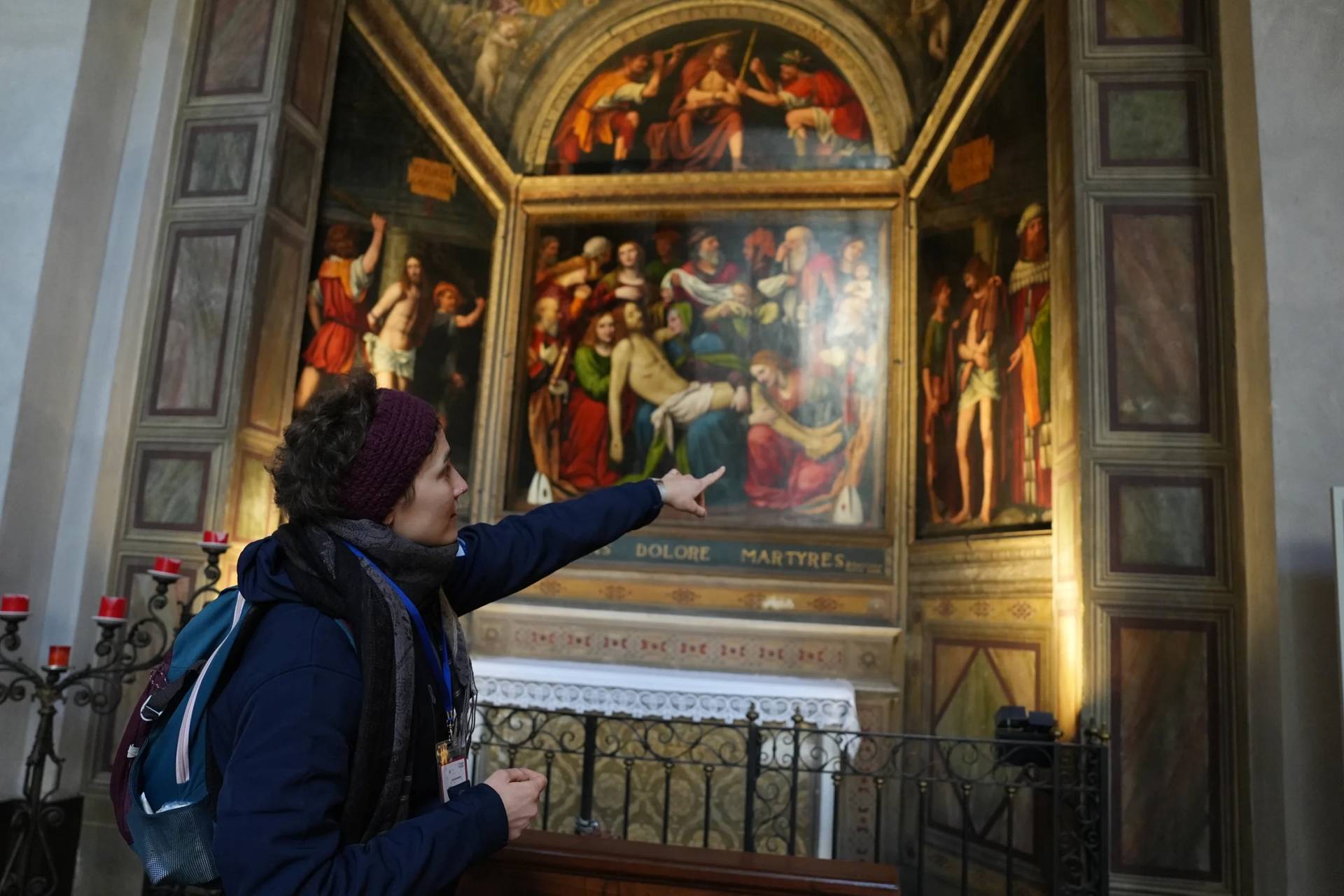ROME – In the wake of new Vatican rules perceived as an effort to clamp down on alleged apparitions and other spiritual phenomena, at least one self-professed visionary is taking a somewhat defiant stand, saying she’s not “against the pope” but insisting on “mutual respect.”
The comments came from Gisella Cardia, who spoke by telephone to a reporter for the Italian newspaper Corriere della Sera after the new Vatican rules were released May 17.
“I’m asking for respect. I don’t think the new norms were written just for me,” said Cardia, 54, a former ceramics salesperson in Sicily who for the past six years has claimed to be the custodian of a statue of Mary weeping tears of blood, known as the Madonna of Trevignano, and the recipient of messages from the Virgin.
“I’m not against the pope, but what’s needed is mutual respect,” Cardia said. “They need to stop saying nonsense about me, and try to understand better.”
RELATED: In new vetting process for apparitions, Vatican nixes ‘supernatural’ label
Although her local bishop declared the events to be non-supernatural in March, Cardia has continued staging monthly gatherings of devotees to pray in front of the image of the Virgin and to receive her latest revelations.
Prior to her alleged mystical experiences, Cardia, whose given name is Maria Giuseppa Scarpulla, was once sentenced to a two-year suspended jail term on charges of fraud related to the bankruptcy of her ceramics company.
It was after that bankruptcy when Cardia and her husband moved to Trevignano, a small town roughly 45 minutes north of Rome located on Lake Bracciano. Roughly six years ago the couple took a trip to Medjugorje, the famed site of alleged Marian apparitions, and Cardia claimed she brought a small statue of the Virgin with her which later began to shed tears of blood.
Cardia and her husband turned a hillside location outside Trevignano into a pilgrimage site, while also reporting other allegedly miraculous phenomena, such as the stigmata, or five wounds of Christ, on Cardia’s body, and writings in Aramaic, the ancient dialect of Hebrew spoken by Christ, appearing on the walls of their home.
Those claims led Bishop Marco Salvi of Civita Castellana, the diocese which includes Trevignano, to launch an investigation, which concluded March 6 with a decree that the phenomena are not supernatural.
Salvi barred priests from celebrating the sacraments for devotees and from attending gatherings at the pilgrimage site. He ordered Cardia and her husband to undergo “a path of purification and discernment,” specified that the term “Madonna of Trevignano” has no ecclesiastical value, and asked faithful to stay away from the devotion.
Despite the decree, Cardia staged another gathering of devotees on May 3, and also announced a new revelation on May 13, the feast of Our Lady of Fatima: “My children, I ask you to pray for all consecrated persons who are trampling on the Body and Blood of my beloved Son with offenses and heresies. This will have grave consequences for the faithful who are led astray. My children, the Church is sinking in a sea of heresies against God,” she claimed the Virgin had said to her.
As far as the new Vatican rules are concerned, Cardia suggested she didn’t see any immediate consequences for her activity.
“I don’t have any reaction,” she said. “I agree with having rules that apply to everyone, such as respect – respect has to be reciprocal,” she said.
“Lots of people follow me, so stop saying nonsense about me,” she said.












